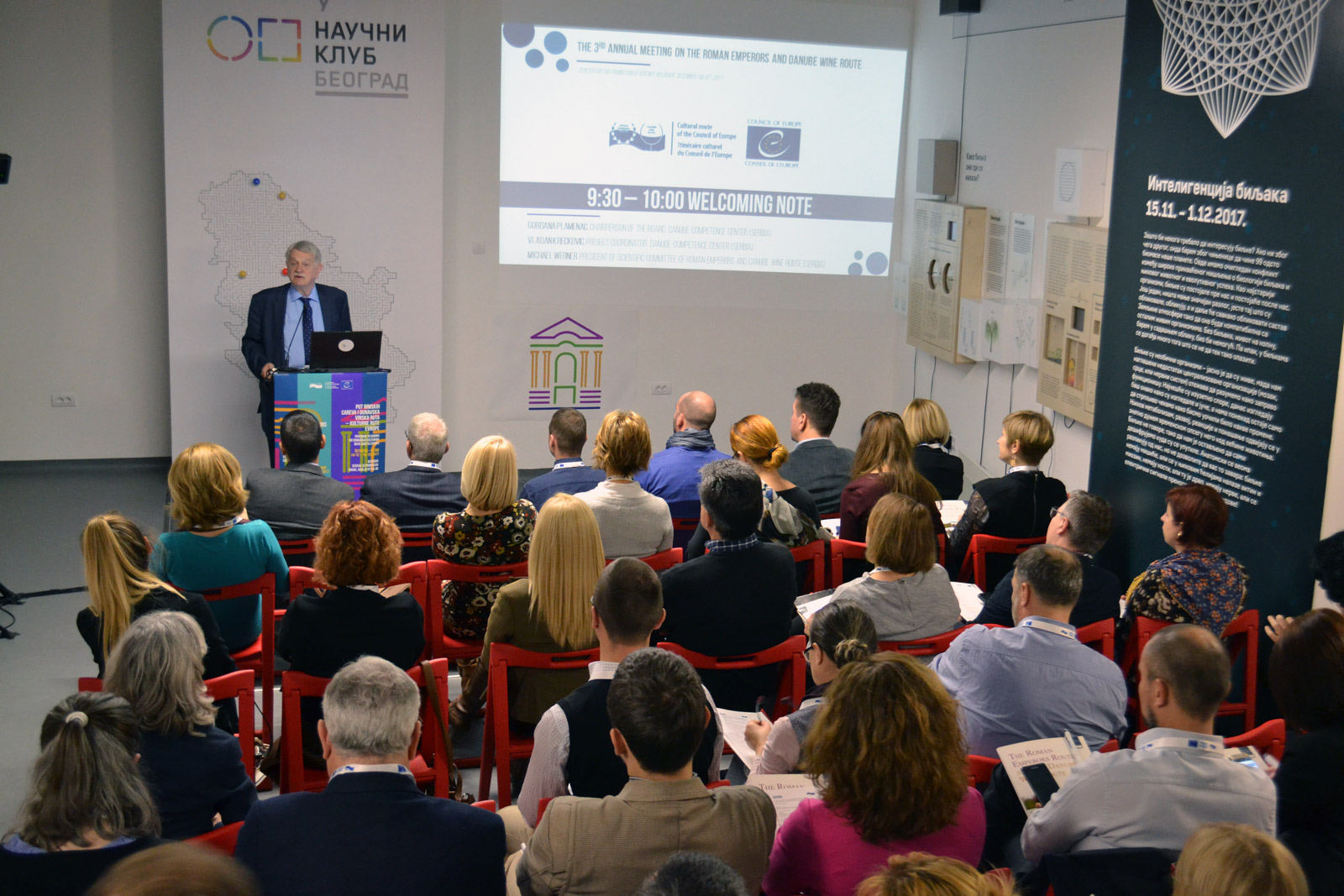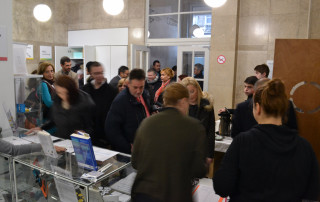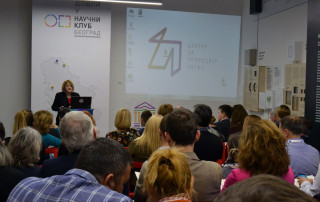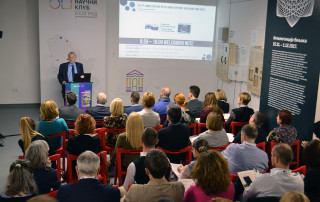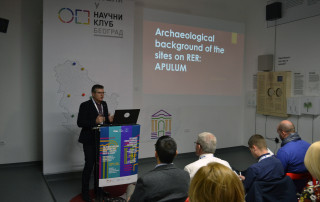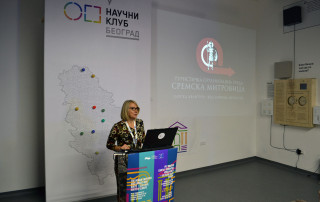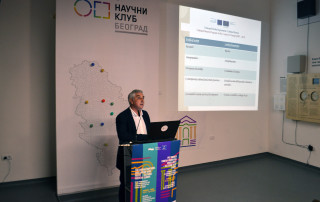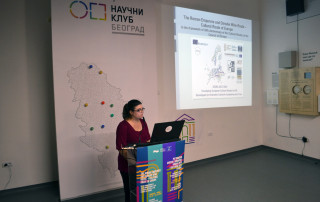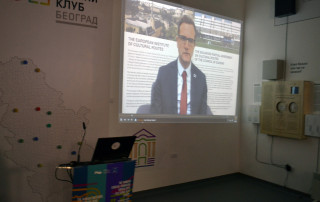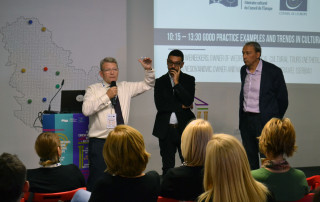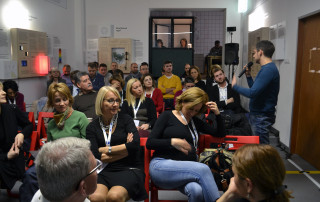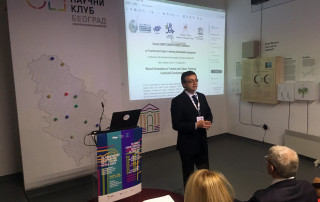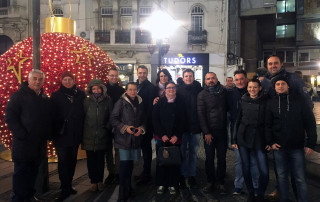The 3rd General Meeting of the Roman Emperors and Danube Wine Route took place between 14th and 15th December in Belgrade at the Center for Promotion of Science and gathered around 50 participants coming from the field of archaeology, tourism, culture and education.
First day of the event was opened with the welcoming notes of DCC President of the Board Ms. Gordana Plamenac, DCC Project Coordinator Mr. Vladan Kreckovic and President of Scientific Committee of the Roman Emperors and Danube Wine Route Mr. Michael Werner.
The programme during the first day was divided into the two panels during which the six representatives of the Roman sites and seven local touristic organisations that are part of the Route presented the themes, events, itineraries and other important cultural and touristic content on sites and in the surrounding area. Goal of this part of the event was to showcase the cultural and touristic potential of the Route and provide elements for the discussion during the following sessions of the meeting.
During the second day of the event, DCC Director of Programes Mr. Danko Cosic pointed out the importance of cooperation between all present stakeholders and also establishment of management body that will take care of the Route development. In next session several good practice examples and trends in the field of cultural tourism were showcased.
Mr. Antonio Barone presented the work of Phoenicians Route – one of the most successful models of cultural routes currently existing in Europe. Ms. Marie Gaillard presented the recently approved ERASMUS project DECRA (Developing Cultural Routes for All) while Mr. Mislav Matisic presented Central Danube Tour project that enhances tourism in Central Danube cross-border region.
Last session was dedicated to the practical examples and questions and answers session. Director of touristic agencies WEDRU Thematical Cultural Tours and Robinson Travel Mr. Arnold Wennekers and Mr. Ljubisa Nesovanovic talked about their experience in the terms of selling the route as a touristic product, showcasing both positive and negative elements through which the overall touristic potential of the route can be improved.
During the closing session Professor of Business Economy at the Faculty of Economics in Belgrade Mr. Goran Petkovic presented the future steps for Route development focusing on the term “dominus nodi” or the hubs through which everyday administrative and operational tasks of the route will be distributed in a decentralised way to the key stakeholders along the Route.
After the conference, participants had an opportunity to enjoy in the guided tour through the Belgrade city center.



